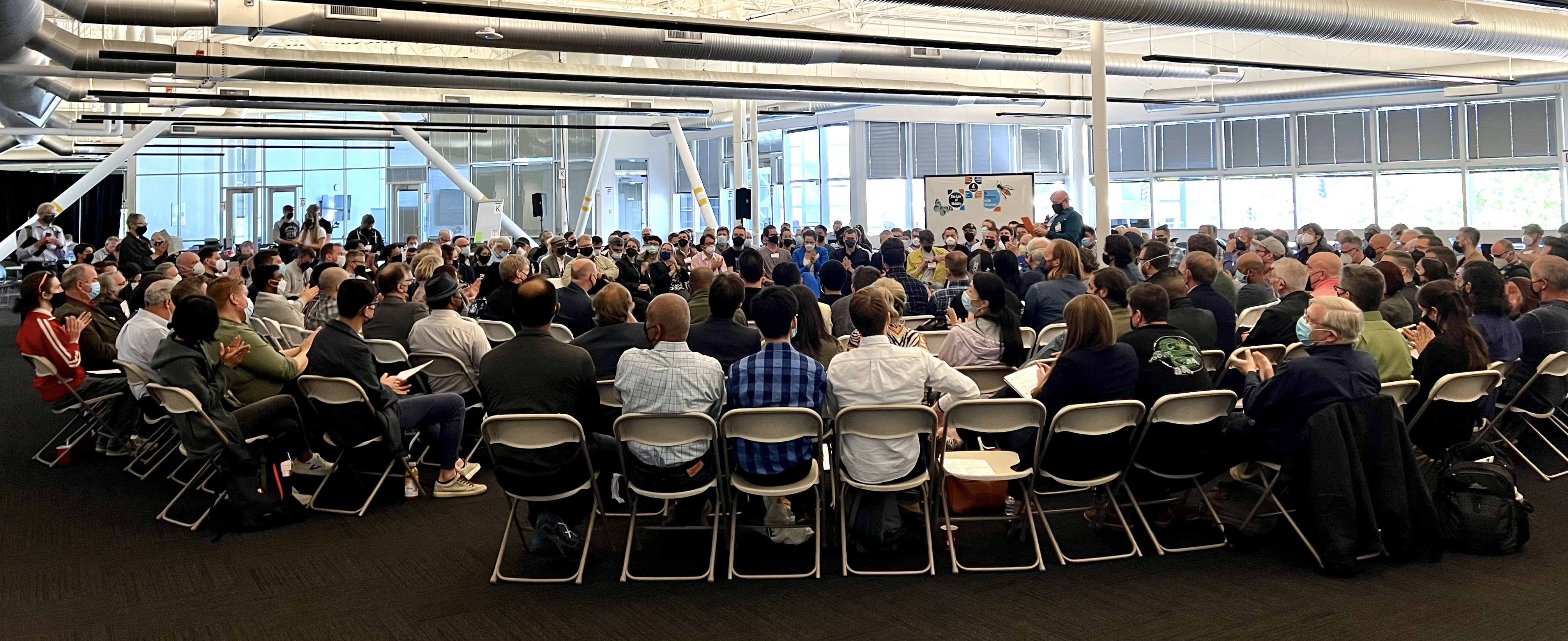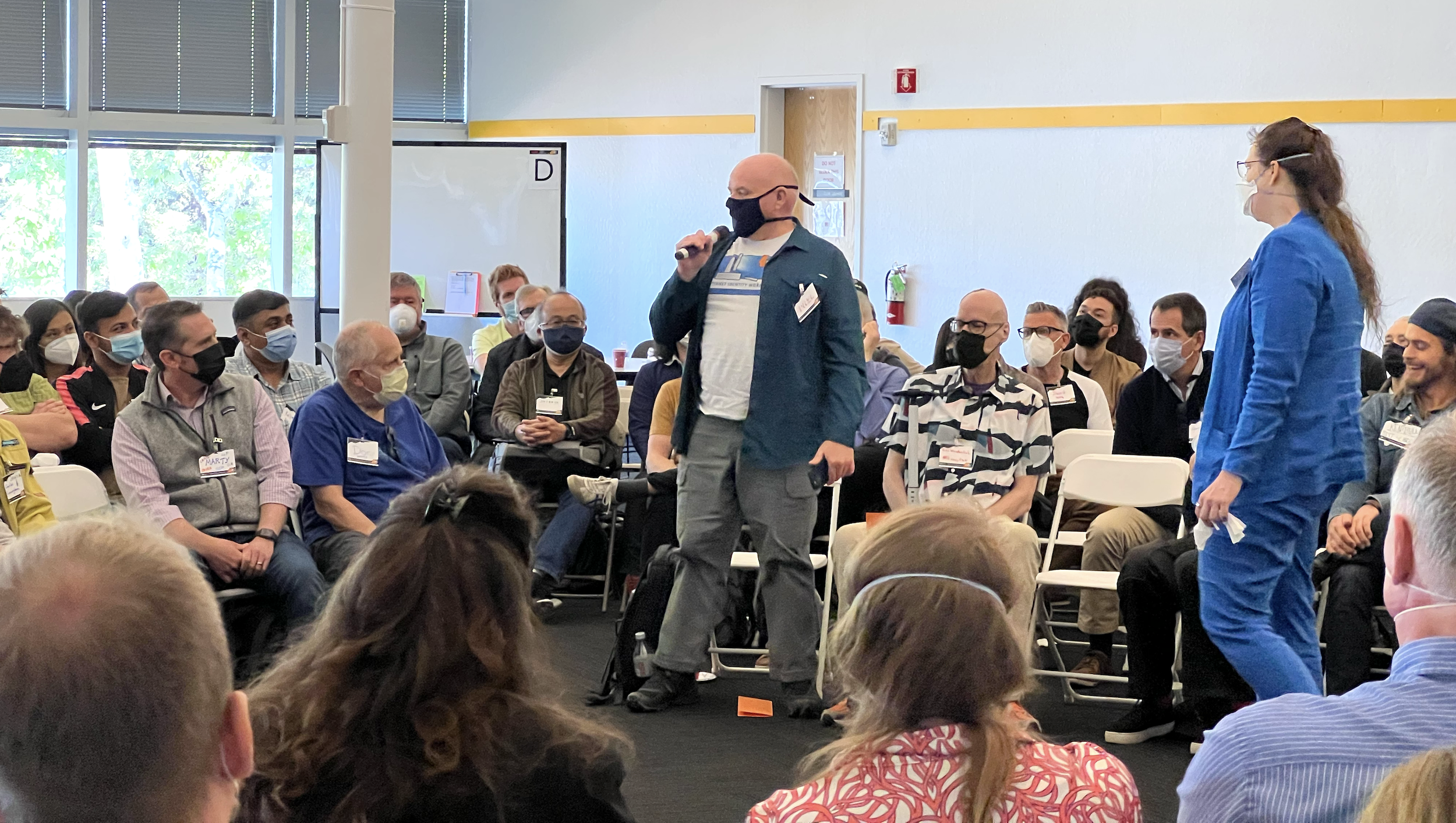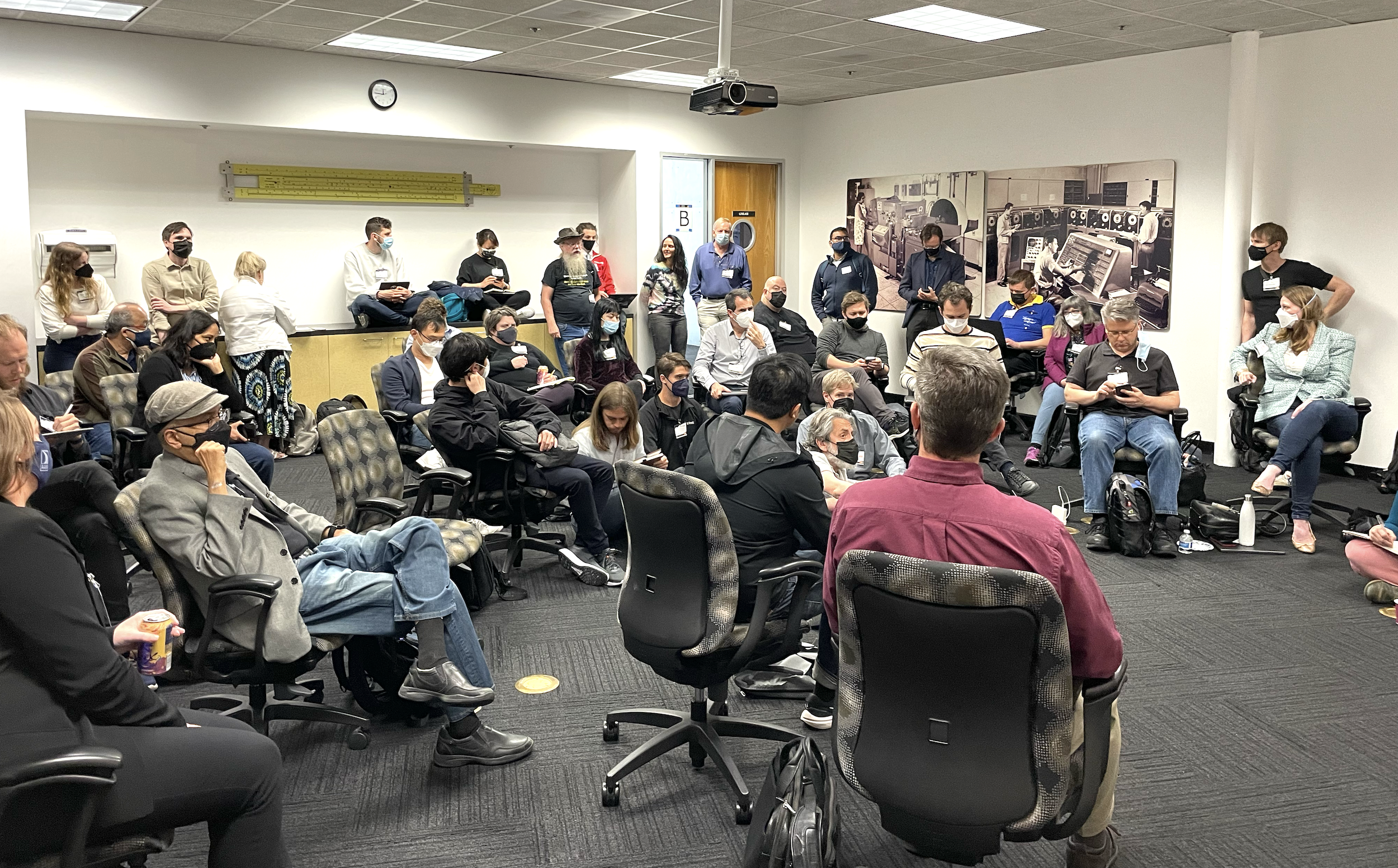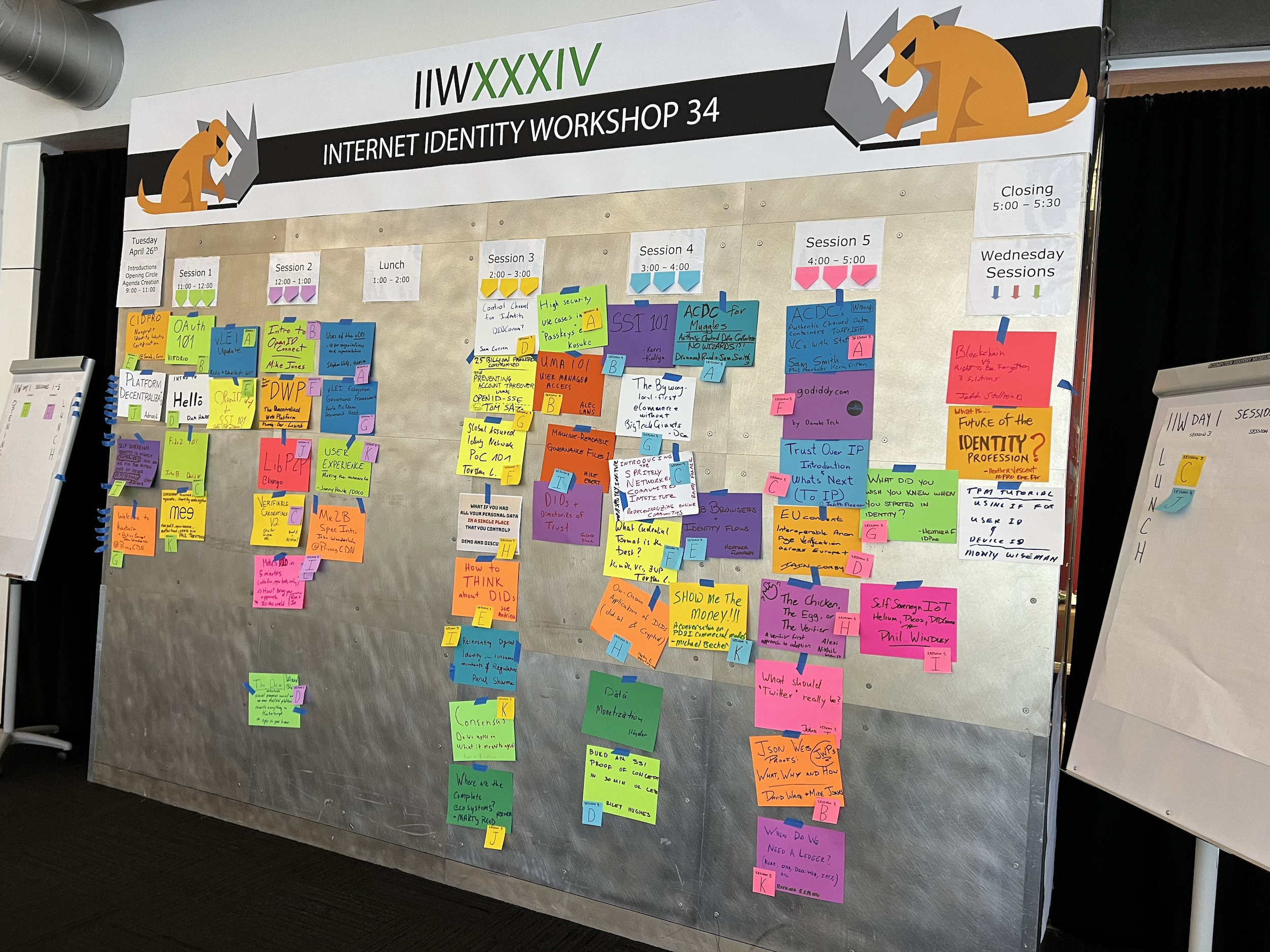Summary
Allowing groups to self-organize, set their own agendas, and decide without central guidance or planning requires being vulnerable and trusting. But the results are worth the risk.

Last month was the 34th Internet Identity Workshop (IIW). After doing the last four virtually, it was spectacular to be back together with everyone at the Computer History Museum. You could almost feel the excitement in the air as people met with old friends and made new ones. Rich the barista was back, along with Burrito Wednesday. I loved watching people in small groups having intense conversations over meals, drinks, and snacks.
Also back was IIW's trademark open space organization. Open space conferences are workshops that don't have pre-built agendas. Open space is like an unconference with a formal facilitator trained in using open space technology. IIW is self-organizing, with participants setting the agenda every morning before we start. IIW has used open space for part or all of the workshop since the second workshop in 2006. Early on, Kaliya Young, one of my co-founders (along with Doc Searls), convinced me to try open space as a way of letting participants shape the agenda and direction. For an event this large (300-400 participants), you need professional facilitation. Heidi Saul has been doing that for us for years. The results speak for themselves. IIW has nurtured many of the ideas, protocols, and trends that make up modern identity systems and thinking.



Last month was the first in-person CTO Breakfast since early 2020. CTO Breakfast is a monthly gathering of technologists in the Provo-Salt Lake City area that I've convened for almost 20 years. Like IIW, CTO Breakfast has no pre-planned agenda. The discussion is freewheeling and active. We have just two rules: (1) no politics and (2) one conversation at a time. Topics from the last meeting included LoRaWAN, Helium network, IoT, hiring entry-level software developers, Carrier-Grade NATs, and commercial real estate. The conversation goes where it goes, but is always interesting and worthwhile.
When we built the University API at BYU, we used decentralized decision making to make key architecture, governance, and implementation decisions. Rather than a few architects deciding everything, we had many meetings, with dozens of people in each, over the course of a year hammering out the design.
What all of these have in common is decentralized decision making by a group of people that results in learning, consensus, and, if all goes well, action. The conversation at IIW, CTO Breakfast, and BYU isn't the result a few smart people deciding what the group needed to hear and then arranging meetings to push it at them. Instead, the group decides. Empowering the group to make decisions about the very nature and direction of the conversation requires trust and trust always implies vulnerability. But I've become convinced that it's really the best way to achieve real consensus and make progress in heterogeneous groups. Thanks Kaliya!




